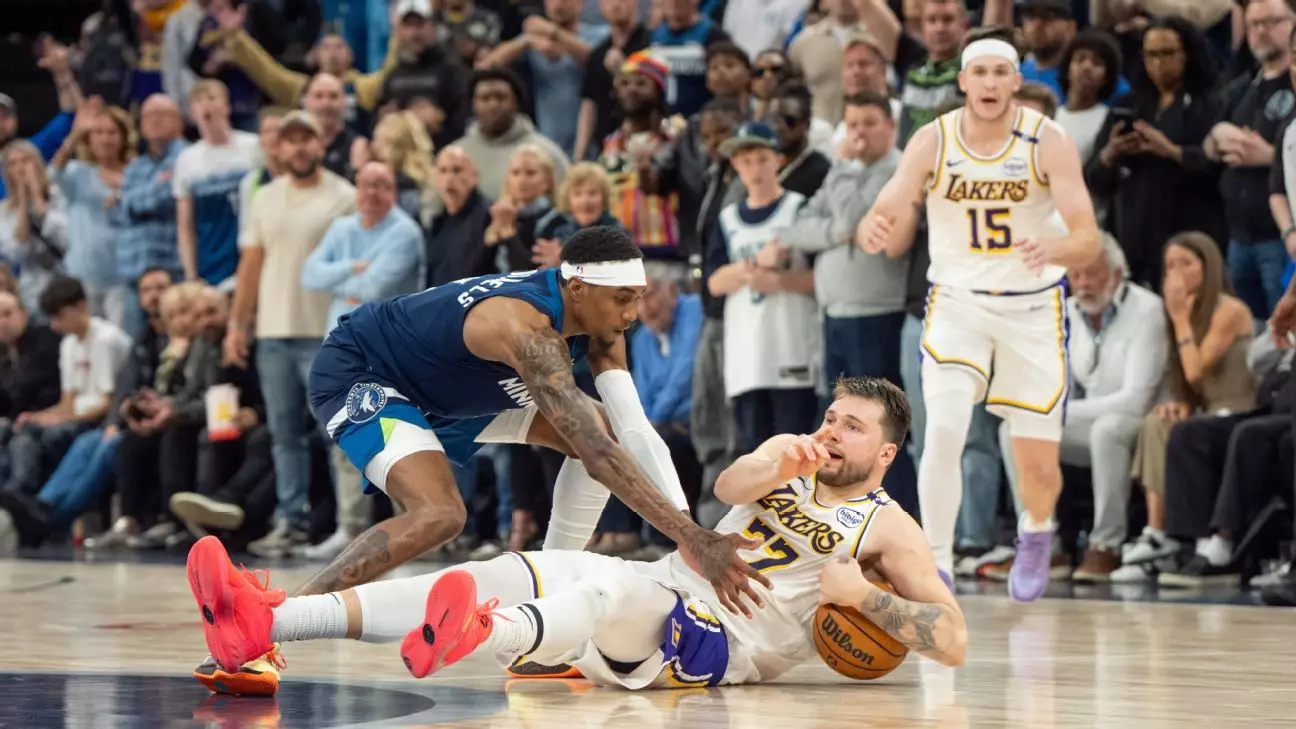The intensity of the NBA playoffs juxtaposes skill, strategy, and arguably the most contentious aspect—refereeing decisions. The recent officiating controversies in the Western Conference playoff series between the Los Angeles Lakers and Minnesota Timberwolves spotlight the vital role referees play in determining outcomes. In Game 4, a critical foul on Luka Doncic was overlooked, which has ignited frustration not only among fans but also within the teams involved.
This incident is emblematic of how one missed call can affect not just a game but the psychological fabric of a team. With the Lakers trailing 114-113 and time dwindling, Doncic was clearly tripped by Minnesota’s Jaden McDaniels. The lack of a whistle at such a pivotal moment raises questions about the referees’ attentiveness during crucial late-game situations. The NBA’s subsequent admission of the oversight only amplifies the outrage, highlighting the inherent imperfections within the officiating crew during high-stakes matches.
Impact on Game Dynamics
Had the foul been accurately called, the script of the game might have turned dramatically. Doncic, a capable free-throw shooter, would have had the opportunity to either tie the game or give the Lakers a critical edge—the very edge that could have shifted momentum. Instead, the missed call allowed Minnesota to capitalize immediately, ultimately leading to a critical basket. This sequence underscores not only the direct consequences of officiating errors but also the psychological burden they impose on players and teams, as the Lakers were left scrambling after a missed opportunity.
In the world of competitive sports, where every possession matters, the ramifications of such blunders resonate far beyond a mere statistical analysis of points scored. They linger in the minds of players, fueling a sense of injustice that complicates subsequent games.
The Broader Implications
The NBA’s Last Two Minute Report acknowledges these glaring misses, but does it offer real accountability? For fans, players, and coaches, is the acknowledgment enough? These reports are intended to provide transparency, yet they fail to rectify the immediate impact of the errors. The psychological toll on the Lakers and the Knicks—both affected by uncalled fouls in their respective games—highlights a common plight in sports: the fickle nature of fate intertwined with human error.
The league has the opportunity to learn and evolve from these incidents. Incorporating technology to assist in real-time decisions could reduce the risk of such egregious oversights in future games. With the advancements in sports analytics and video review capabilities, a shift towards a more technology-assisted officiating model may be the key to preserving the integrity of high-stakes competitions.
Player Perspectives
Responses from key players add depth to this narrative. LeBron James, frustrated by the officiating, expressed the belief that natural basketball movements should not be penalized. This sentiment captures the essence of what many players feel—a need for referees to have a comprehensive understanding of the game’s fluid dynamics. James’ remark about the hand being part of the ball speaks to this larger issue of nuance in officiating, emphasizing that players should not be penalized for plays that are an inherent part of their sport.
The players’ perspectives highlight a growing call for change. The game requires not only physical prowess but also a skilled interpretation of its fluid dynamics. As the playoffs continue, these conversations will undoubtedly shape the discourse around officiating, urging the league to consider reforms to maintain the fairness and excitement that embody the NBA.


Leave a Reply